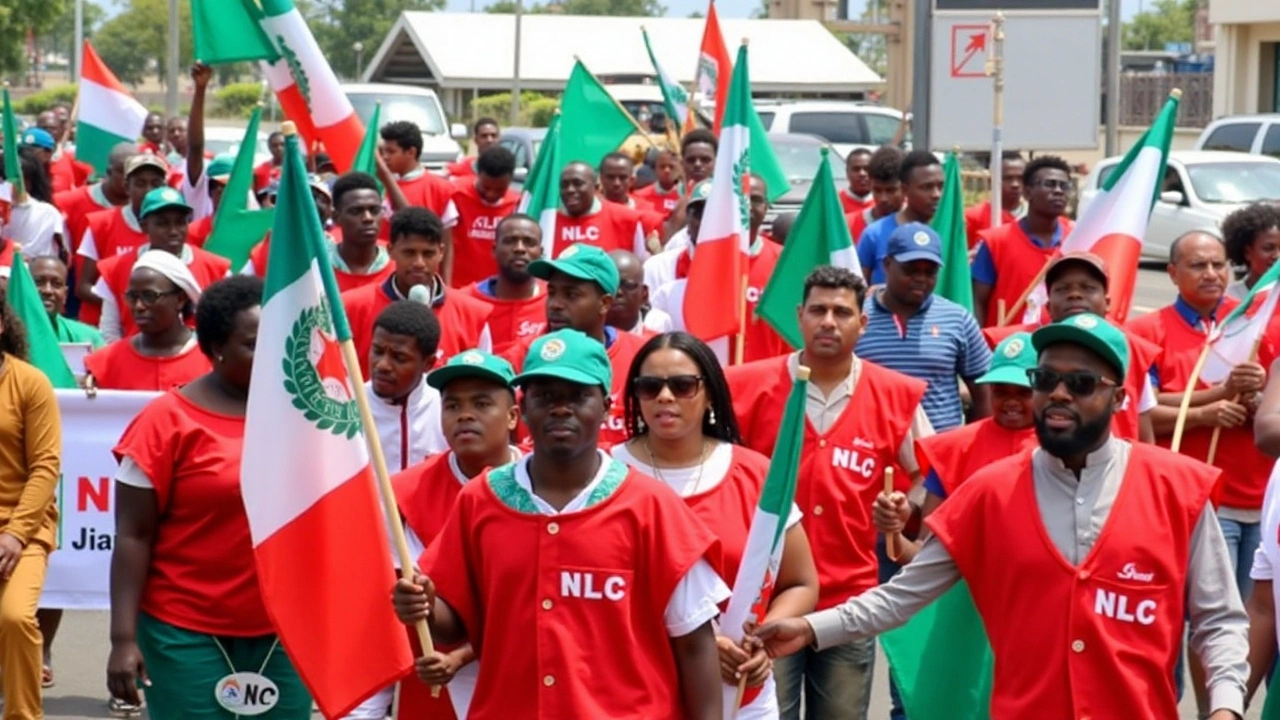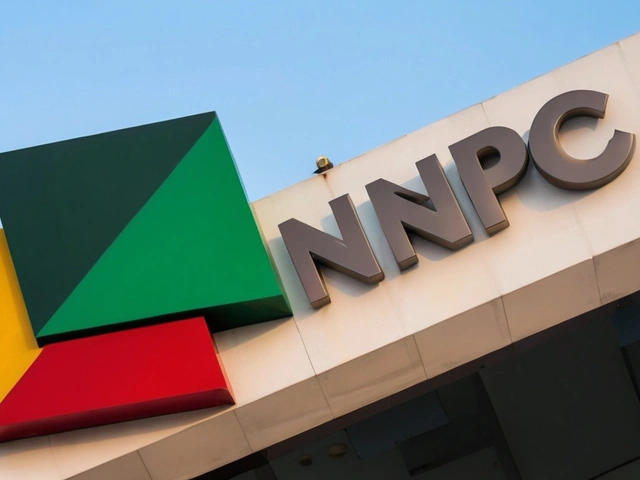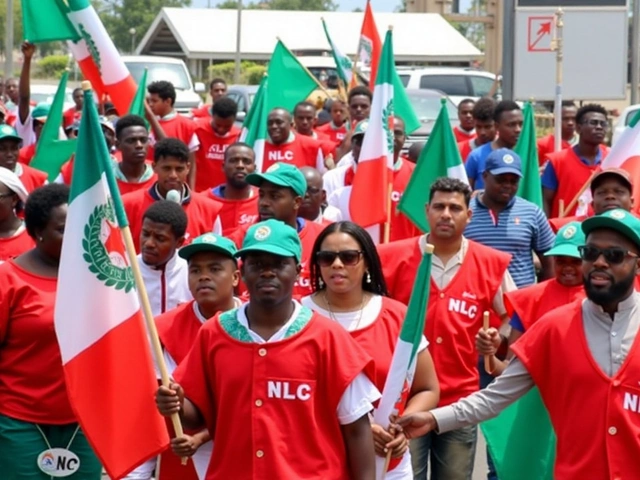
Telecommunications Union Opposes Labor Congress Protest on Tariff Hike
Telecommunications Union's Stance on Tariff Hike Protest
The current economic situation in Nigeria is a pressing concern for many citizens, with the recent announcement of a 50% increase in telecommunications tariffs only exacerbating existing hardships. This hike, approved by the government, has sparked widespread debate and concern among various stakeholders, including the Private Telecommunications and Communications Senior Staff Association of Nigeria (PTECSSAN). However, the union has clearly stated its opposition to the nationwide protest planned by the Nigeria Labour Congress (NLC) to oppose this increase. Such a stance is indicative of a significant division within labor movements regarding the approach to handling economic challenges.
PTECSSAN's decision to distance itself from the protest stems from not being consulted before the NLC made plans for the protest, slated for February 4, 2025. The union believes that participating in this protest could potentially lead to further disruptions across the telecommunications sector, an outcome that would not only impact their members but also exacerbate the difficulties faced by the general public. This highlights the union's efforts to protect its members’ interests while being cautious of unintended consequences that could arise from such large-scale protests.

Looming Economic Challenges and Tariff Hike
With the tariff hike threatening to deepen economic challenges, both PTECSSAN and other labor unions are finding themselves at a crossroads on how best to protect the interests of Nigerian citizens. The increase in tariffs has sparked widespread backlash as consumers face the potentially heavy burden of these additional costs amidst an already fraught economic landscape characterized by inflation and rising living costs. The proposed protest by NLC aims to voice collective concerns against this policy, pushing the government for a reconsideration. Nevertheless, divergent paths taken by unions like PTECSSAN emphasize why unified approaches towards policy changes are challenging.
Despite their reservations about the NLC’s protest strategy, PTECSSAN remains committed to advocating for fair treatment and conditions for its members, as well as the broader public. Striking a balance between activism and pragmatism is a constant challenge for labor unions in Nigeria, particularly in a sector as volatile as telecommunications. With consumer advocacy groups also contemplating their own measures against the tariff increase, the scale and intensity of opposition remain significant, pointing to a complicated matrix of responses across the board.
Sectoral Impacts and Utility Management
The telecommunications sector is vital to both Nigeria’s economy and its citizens. Any disruptions could have a cascading effect, impacting everything from basic business operations to international telecommunications networks. PTECSSAN’s caution regarding potential sectoral upheavals is understandable, given the global reliance on stable communication channels. Moreover, telecommunications companies might face their own set of challenges with increased scrutiny on how they manage cost increments in tandem with service quality expectations from consumers.
In a modern economy, reliable telecommunications are not just a convenience but a necessity, influencing everything from banking and business transactions to remote schooling and healthcare access. Therefore, any instability in this sector could ripple outwards, causing widespread disruptions across various facets of daily life. Hence, unions like PTECSSAN find themselves balancing immediate reactions with long-term perspectives on sectoral stability.
An intricate aspect of this debate is understanding how different factions within Nigerian labor and consumer society perceive and respond to government policies. PTECSSAN’s non-participation in the protest signals a preference for dialogue and negotiation over immediate confrontation, a choice that could align with economic objectives of maintaining occupational stability and growth within telecommunications.

Examining Broader Economic Implications
Amidst these differing views, it is critical to delve into the broader economic implications that this tariff increase poses. A decision of this magnitude doesn’t occur in isolation; it plays into the broader narrative of governmental fiscal strategies, consumer spending power, and inflation rate adjustments. Most notably, higher telecommunications costs possibly mean lesser disposable income for other essentials, tightening an already stretched financial situation for many households.
Both the government and corporations face immense pressure to balance fiscal responsibilities with corporate and social responsibility, ensuring that such tariffs do not disproportionately affect the most vulnerable populations. The lack of consensus within labor groups could lead to a fragmented response to economic hardships, necessitating careful policy negotiation that accounts for multiple interests.
Forging Forward: Dialogue and Resolution
PTECSSAN’s stance on the proposed NLC protest raises questions about effective collective action and negotiation methods. As sectors evolve and global trends influence domestic markets, labor unions must recalibrate their strategies to align with rapidly shifting economic landscapes, understanding that their advocacy directly correlates with broader social well-being. With telecommunications tied so closely to personal and professional life, any move to raise tariffs inevitably garners concentrated attention.
Furthermore, the union’s approach reflects an understanding of the nuanced interplay between service stability and financial accessibility, striving for solutions that minimize adverse impacts across stakeholders, whether they be companies, consumers, or employees themselves. As such, PTECSSAN and other unions might look into collaborative frameworks alongside consumer advocacy agencies and governmental bodies to develop sustainable solutions for tariff-related disputes.
The announcement of the tariff increase, and the subsequent reactions by both supporters and detractors, highlights the need for robust dialogue between policymakers, service providers, and consumers. The engagement of multiple voices and interests is essential to reach agreements that incorporate economic realities with humane considerations, preventing extreme adversities in critical sectors such as telecommunications.








